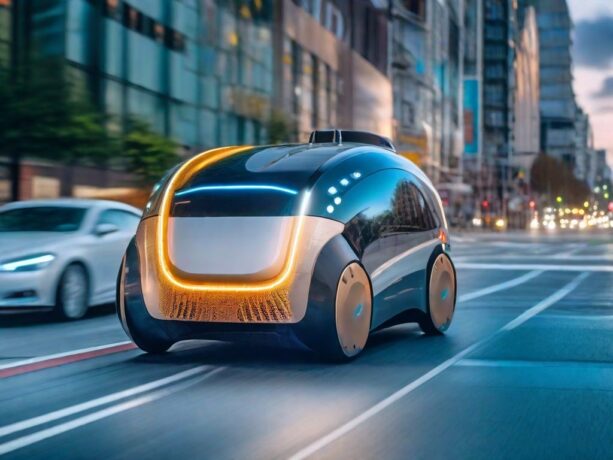
The automotive industry, a cornerstone of modern society, is undergoing a profound transformation driven by technological innovation, shifting consumer preferences, and evolving societal demands. From the rise of electric vehicles to the integration of artificial intelligence in vehicle systems, the auto industry is experiencing a wave of change that promises to redefine the way we think about transportation. In this article, we delve into ten crucial trends that are shaping the future of the auto industry and driving innovation across the globe.
1. Electrification of Vehicles
One of the most significant trends reshaping the auto industry is the widespread adoption of electric vehicles (EVs). With growing concerns about climate change and air pollution, automakers are investing heavily in electric propulsion systems to reduce greenhouse gas emissions and dependence on fossil fuels. The development of advanced battery technologies and charging infrastructure has made EVs increasingly accessible and affordable, paving the way for a cleaner, greener future of transportation.
2. Autonomous Driving Technology
The pursuit of autonomous vehicles represents another major trend in the auto industry. Companies are investing billions of dollars in developing self-driving technology with the potential to revolutionize transportation by improving safety, reducing congestion, and enhancing mobility for all. While fully autonomous vehicles are still in the testing phase, advancements in driver-assistance systems are already making driving safer and more efficient.
3. Connectivity and Internet of Things (IoT)
The integration of connectivity and Internet of Things (IoT) technology in vehicles is transforming the driving experience. From infotainment systems and navigation services to real-time vehicle diagnostics and over-the-air updates, connected cars offer a wide range of features that enhance convenience, safety, and entertainment for drivers and passengers alike. Moreover, vehicle-to-vehicle (V2V) and vehicle-to-infrastructure (V2I) communication systems are paving the way for smarter, more efficient transportation networks.
4. Shared Mobility Services
The rise of shared mobility services such as ride-sharing and car-sharing is changing the way people think about transportation. Companies like Uber, Lyft, and Zipcar are providing convenient, on-demand transportation solutions that reduce the need for private car ownership and alleviate traffic congestion in urban areas. Shared mobility services offer a cost-effective and sustainable alternative to traditional transportation modes, contributing to more efficient land use and reduced environmental impact.
5. Digitalization of Retail and Sale
The digitalization of retail and sales is revolutionizing the car-buying experience. Automakers and dealerships are embracing online sales platforms, virtual showrooms, and digital retailing tools that allow customers to research, configure, and purchase vehicles from the comfort of their homes. Digital retailing offers greater convenience and transparency for consumers while streamlining the car-buying process and reducing overhead costs for dealerships.
6. Subscription-Based Ownership Models
Subscription-based ownership models are gaining popularity as consumers seek more flexible and convenient alternatives to traditional car ownership. Instead of purchasing or leasing a vehicle outright, customers can subscribe to a service that provides access to a fleet of vehicles on a monthly basis. These subscription services often include maintenance, insurance, and roadside assistance, offering a hassle-free and customizable ownership experience.
7. Sustainability and Eco-Friendly Materials
Sustainability is a growing priority for automakers and consumers alike, leading to the use of eco-friendly materials and manufacturing processes in vehicle production. From recycled plastics and natural fibers to bio-based materials and renewable energy sources, automakers are incorporating sustainable practices throughout the supply chain to reduce environmental impact and promote circular economy principles.
8. Personalization and Customization
Consumers are increasingly seeking personalized and customized vehicles that reflect their unique preferences and lifestyles. Automakers are responding by offering a wide range of customization options, from exterior paint colors and interior trims to advanced driver-assistance features and entertainment systems. Personalization allows consumers to create a vehicle that suits their individual needs and tastes, fostering brand loyalty and customer satisfaction.
9. Mobility as a Service (MaaS)
Mobility as a Service (MaaS) is an emerging trend that aims to integrate various transportation modes into seamless, interconnected networks. Through digital platforms and mobile apps, users can plan, book, and pay for multi-modal trips that combine public transit, ride-sharing, biking, and walking options. MaaS promotes sustainable transportation choices and reduces reliance on single-occupancy vehicles, leading to more efficient and accessible mobility solutions for all.
10. Data Analytics and Artificial Intelligence
The proliferation of data analytics and artificial intelligence (AI) in the auto industry is driving innovation in vehicle design, manufacturing, and maintenance. AI-powered systems enable predictive maintenance, real-time diagnostics, and autonomous driving capabilities, improving vehicle performance, reliability, and safety. Moreover, data analytics allow automakers to gain insights into customer preferences and market trends, informing product development and marketing strategies.
In conclusion, the auto industry is undergoing a period of unprecedented change and innovation, driven by technological advancements, evolving consumer preferences, and societal trends. From electric vehicles and autonomous driving technology to connectivity and shared mobility services, the future of transportation promises to be more sustainable, efficient, and interconnected than ever before. As automakers continue to adapt to these trends and embrace new opportunities, the possibilities for the future of mobility are endless.
